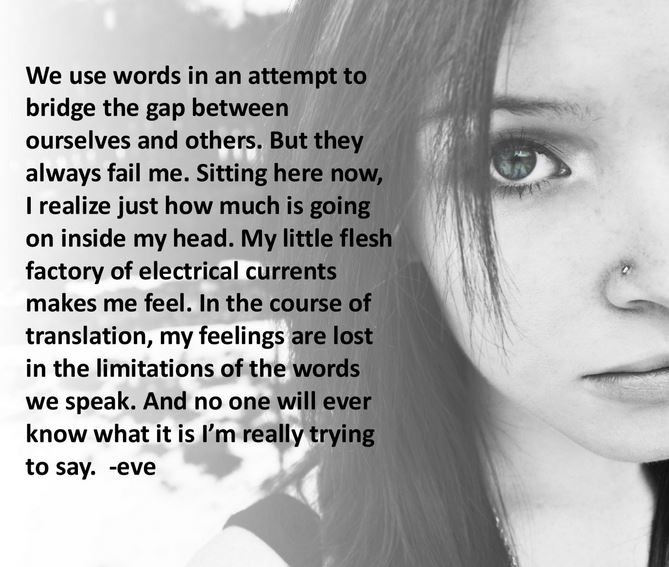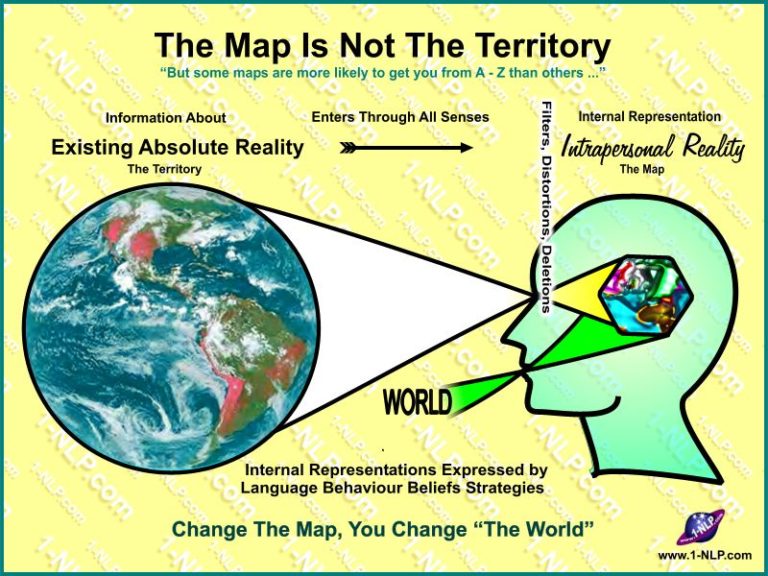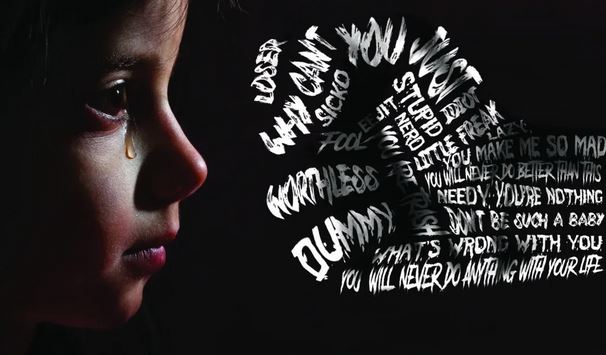Lost For Words? Experience Truth
Contemplating her husband's grave
Lost For Words - Experiences
Motorcycle accident
A young family friend was
tragically killed in a motorcycle accident. Many of his friends had put
together a selection of articles and remembrances of his life which were
featured in a lady chapel within the local parish church where the
funeral was to be held.
I was there in that chapel reading
through these remembrances when I saw his parents in the distance, in
discussion with the priest about the order of the funeral service to be
held the following day.
Although I knew their son as a friend of
one of my grown up children and he had visited our family home a number
of times, I had not met his parents. However, as I was there with my
child who had been their son’s friend, it seemed appropriate to greet
them.
As we approached them, I was lost for words, as we reached them we hugged them and held them in our arms.
Deathbed reconciliation
On
another occasion, I received an unexpected message that a former
business associate of mine whom I hadn’t seen for about 15 years was
dying of cancer.
This man had been a good friend and a
significant mentor in my business career but we had had a major dispute
in the past which was why we had lost contact.
As I sat beside his bed, I was again lost for words.
He looked at me and reached out his hand and I held it for about 5 minutes and we sat in silence.
Reflecting on these experiences I realised that:
Lost For Words - Reflections
The Limitations Of Language

A lot of what
causes us to identify with this image that we have of ourselves, and the
world around us, is built into our language.
Notice that in our
language, every sentence has a verb, an action of some sort, and a noun
that does the action. But is this really the way it is?
So if there are no separate things, how can we have a noun, a separate thing, doing something?
Isn’t this, too, just a social convention, but one that doesn’t describe reality accurately?
The
structure of our language just reinforces that our concept of what is
real (that there are separate things, that acts on other separate
things) is real, when it isn’t.
Your image of yourself is deficient. It has to be. It’s just a map, an image, a concept you have of "you". It’s the menu, but you are the meal itself.
You
really are all the connections, all the processes of the universe, a
centre of awareness smack in the middle of everything, and that
everything is you.
Your mental image of yourself, your ego, your map of reality, keeps you from directly seeing and feeling who you are.
Your image of you is no more you than an idol is God.
The Double Bind Of Language And Speech
The
concepts we employ, the categorizations we apply and the words we
choose and use to articulate a direct experience put us in a double
bind, and it is this:
For all that we gain by being able to
speak about an experience we lose a greater amount of the
full meaning of that experience by speaking it.
Resource:
Semantics, Abstraction and The Beneficial Neurological Delay
There Is Always A Context, And Framing, In Our Use Of Words
To
illustrate and personalize this right now, the words that I am writing
to you here in this article - and that I can hear in my head as I type
this - have a meaning to me that is created and shaped by my inner map
of reality.
However you, as you read this will be receiving, filtering and interpreting these words with your inner map of reality.
What I mean to say and what you hear may not be the same thing!
We Confuse Being Informed About With Having Experience Of
Our educated obsession with words ensures we confuse being informed about with having experience of.
We
spend so much time devouring words and images like hungry beasts and
spewing out our own torrents of words and images in our blogs, (on
websites such as this !) and on social media, that we confuse our
thoughts and our emotional associations with the experience of these
things.
The direct experience of eating tasty food – the
unconditional love of a parent or child – the energy and abandonment of a
good sexual experience - cannot be confused with our inner
representations of them or the words and images we may use to attempt to
describe these powerful experiences.
Imagine how many words you
would need to describe the taste of freshly ground coffee to someone who
has no experience of coffee. How different it is to brew them a cup
and letting them taste it for themselves.
The difference between the “world as-it-is” with the “world as-it-is-thought-about” and spoken about, is vast.
Words Have Power Because Of The Results They Create In Your And Others' Life Experiences
In The Power of Framing we talked about the causal link between inner states and external events:
"We
are energetic beings. The inner associations that we make and the
meanings that we ascribe to those associations are all energy based.
By changing the words we use to reframe an experience we change the underlying energetic state.
This change in energetic state changes the results that we create.”
Your self talk affects how you feel, your conversations with others affects how they feel.
Your words have the power to hurt or to heal.
If you can't think of the right thing to say, say nothing.
Recommended Third Party Resource:
Levels of Silence and Conscious Abstraction: Where Language Meets Mindfulness
Next Article:
Belief - A Terrible Tyrant Or An Empowering Servant
Return from "Lost For Words" to: Walking The Talk
Or to: What Is Spirituality?
Contact me
LATEST ARTICLES
Master The Season You Are In - The Key to Fulfilling Your Purpose
 To fulfil your purpose, you must first master the season you are in. One of the biggest mistakes you can make in life is focusing all your energy on the next season instead of learning to master the s…
To fulfil your purpose, you must first master the season you are in. One of the biggest mistakes you can make in life is focusing all your energy on the next season instead of learning to master the s…The Inner Weight of Shame - Sustained By Attentional Fixation
 A Mind That Is Continuously Engaged In Self-Surveillance. Shame is one of the heaviest inner burdens a human being can carry. It does not announce itself loudly or demand attention through drama. Inst…
A Mind That Is Continuously Engaged In Self-Surveillance. Shame is one of the heaviest inner burdens a human being can carry. It does not announce itself loudly or demand attention through drama. Inst…Does Prayer Work? The Psychology of Prayer, Meditation and Outcomes
 Reality Is A Complex System Of Countless Interactions - Including Yours. So does prayer work? The problem is that the question itself is usually framed in a way that guarantees confusion. We tend to a…
Reality Is A Complex System Of Countless Interactions - Including Yours. So does prayer work? The problem is that the question itself is usually framed in a way that guarantees confusion. We tend to a…Living in Survival Mode Without Surrendering Mental Authority
Living in Survival Mode Without Surrendering Mental Authority
 Clear Thinking When You’re Just Trying to Stay Afloat. Many people today are overwhelmed because they are living in survival mode - not temporarily, but as a persistent condition of life. For many, th…
Clear Thinking When You’re Just Trying to Stay Afloat. Many people today are overwhelmed because they are living in survival mode - not temporarily, but as a persistent condition of life. For many, th…Manifestation Without Magic: A Practical Model
 Manifestation without magic is not a softer or more intellectual version of popular manifestation culture. It is a different model altogether. Popular manifestation teachings tend to frame reality as…
Manifestation without magic is not a softer or more intellectual version of popular manifestation culture. It is a different model altogether. Popular manifestation teachings tend to frame reality as…Staying Committed When You Can't See Progress - The Psychology of Grit
 Uncertainty Is Not The Absence Of Progress, Only The Absence Of Reassurance. One of the most destabilising experiences in modern life is not failure, but uncertainty and staying committed when you can…
Uncertainty Is Not The Absence Of Progress, Only The Absence Of Reassurance. One of the most destabilising experiences in modern life is not failure, but uncertainty and staying committed when you can…The Battle For Your Mind - How To Win Inner Freedom In A Digital Age Of Distraction
 From External Events to Inner Events. We often think of “events” as things that happen out there: the traffic jam, the rude comment, the delayed email reply. But what truly shapes our experience is wh…
From External Events to Inner Events. We often think of “events” as things that happen out there: the traffic jam, the rude comment, the delayed email reply. But what truly shapes our experience is wh…How to See Your Thoughts Without Becoming the Story
 A Practical Guide to Thought-Awareness. You can spend your life inside the stories of your mind without ever learning how to see your thoughts clearly and objectively. Most of the stuff we tell oursel…
A Practical Guide to Thought-Awareness. You can spend your life inside the stories of your mind without ever learning how to see your thoughts clearly and objectively. Most of the stuff we tell oursel…The Collison Decision Matrix - A Simple Framework for Better Choices
 The Collison Decision Matrix Is A Practical Everyday Thinking Tool. Most of us spend a surprising amount of time worrying about decisions. From small ones such as what to wear, what to eat, what to te…
The Collison Decision Matrix Is A Practical Everyday Thinking Tool. Most of us spend a surprising amount of time worrying about decisions. From small ones such as what to wear, what to eat, what to te…The Power Of Asking The Right Question
 The Power Of Asking The Right Question Lies In The Quest For Insight. To experience the power of asking the right question you must develop the practice of asking questions. The best way to improve th…
The Power Of Asking The Right Question Lies In The Quest For Insight. To experience the power of asking the right question you must develop the practice of asking questions. The best way to improve th…Site Pathways
 Here is a site pathway to help new readers of Zen-Tools navigate the material on this site. Each pathway is based around one of the many key themes covered on this site and contain a 150 word introduc…
Here is a site pathway to help new readers of Zen-Tools navigate the material on this site. Each pathway is based around one of the many key themes covered on this site and contain a 150 word introduc…


